Teaching
-
ChE 351: Engineering Analysis of Chemical Systems (Course outline, announcements, and homework can be found on Canvas).
-
EECE 595C: Molecular Biochemical Engineering (We are using Canvas for this course. All the important information can be found there).
Outreach
- 2023 Seminar “The Next Generation of Biomaterials: A Synthetic Biology Lecture and Seminar for Grades 6-12 Teachers”: In May 2023, the Zhang Lab extended its groundbreaking research to local high school and middle school science educators by hosting an insightful seminar titled, “The Next Generation of Biomaterials: A Synthetic Biology Lecture and Seminar for Grades 6-12 Teachers.” The event spotlighted the most recent breakthroughs in synthetic biology and projected future workforce requirements, as presented by Professors Marcus Foston and Fuzhong Zhang. A pivotal part of the discussion was the exploration of ‘areas of convergence,’ highlighting the importance of transdisciplinary research. The conversation underscored the vital roles that social scientists, economists, and computer scientists play in shaping contemporary synthetic biology projects. The event was warmly received, with a high level of interest expressed by teachers for future collaboration. Their enthusiasm was best captured by one educator’s comment, “Inspiring and applicable. I’m eager to take this inspiration back to my classroom!”, reflecting a sentiment widely shared among the attendees.
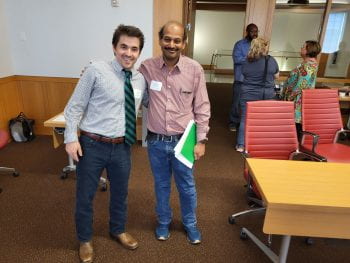
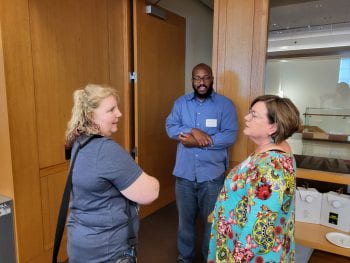
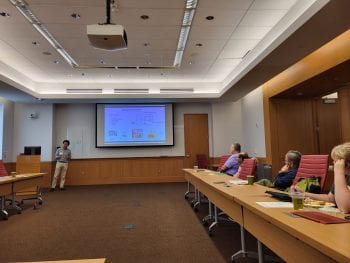

-
2019 Research Experience in Biology for High School Students: We have continued our tradition of hosting a one-week Lab Research Experience for 5 selected high school students in July 2019. Our major objective in this training activity is to provide students an opportunity to be exposed to the scientific culture, to get-in-touch with real research, to interact with graduate students, postdoctoral fellows, and faculty members, and to see the career path as a scientist. During this week, students were trained by our graduate student Christopher Hartline in basic molecular biology lab techniques related to proposed aims of our NSF Broad Impacts Plan project. Students were also given the opportunity to engage with their peers through reading and discussion of synthetic biology review papers. We expected the students to have an unforgettable and deep research experience and to develop strong interests in science. We received excellent feedback from the students at the end of the week. Below are the results of the questionnaire, where on a scale of 1-5, 5 represents “strongly agree” and 1 represents “strongly disagree”.
-
Q1: I can describe to a friend the basics of cloning a piece of DNA. Score: 4.2
-
Q2: I feel more comfortable using biological laboratory instruments and techniques. Score: 4.8
-
Q3: This program helped me understand how researches can use synthetic biology to solve real-world problems. Score: 4.8
-
Q4: This program helped me understand how to safely perform research in a biological laboratory. Score: 4.8
-
Q5: This program helped me think about my future career. Score: 4.8
-
Q6: I would recommend this program to a friend. Score: 5.0
-
-
2018 Workshop “Hot Topics in Synthetic Biology”: As a part of the Broad Impacts Plan for a NSF-funded project, we hold a workshop named “Hot Topics in Synthetic Biology” on Jun 21, 2018. Totally fourteen K-12 teachers from local public high schools attended this workshop. Graduate students Yichao Han, Christopher Hartline, and Alexander Schmitz from Zhang Lab introduced basic ideas, technologies, and applications of synthetic biology respectively. By educating high school teachers who will later teach multiple classes of students during the coming semester after the workshop, we expect to educate a total of 2000 students each year through this workshop.We received excellent feedback from the teachers based on our post-assessment. Post-workshop questionnaire, 1-5 scale, with 5 representing “strongly agree” and 1 representing “strongly disagree.”
-
Q1: I am more familiar with synthetic biology after this workshop and can explain to a student what synthetic biology means. Score: 4.5
-
Q2: I clearly understand the safety issue related to genetic modified organisms now. Score: 4.5
-
Q3: I feel that my students have excellent access to cutting edge science, including the opportunity offered by the Zhang lab for students to participate in a 1-week research project. Score: 4.2
-
Q4: I plan to nominate students for a 1-week research project in the Zhang lab. Score: 3.8
-
Q5: I am excited to share what I learned in the workshop with my students. Score: 4.6
-
Q6: This workshop made me more interested in science. Score: 4.3
-
Q7: This workshop helped me understand how basic science is applied to solve real world problems. Score: 4.5
-
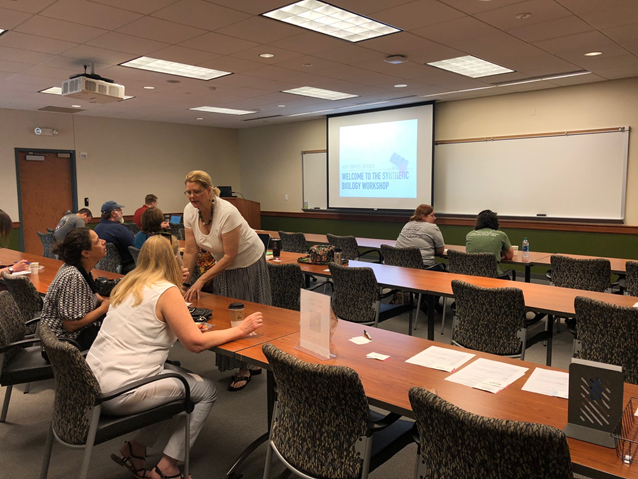
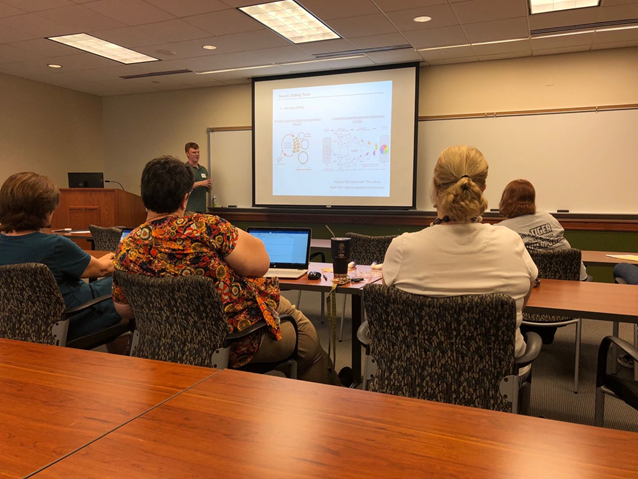
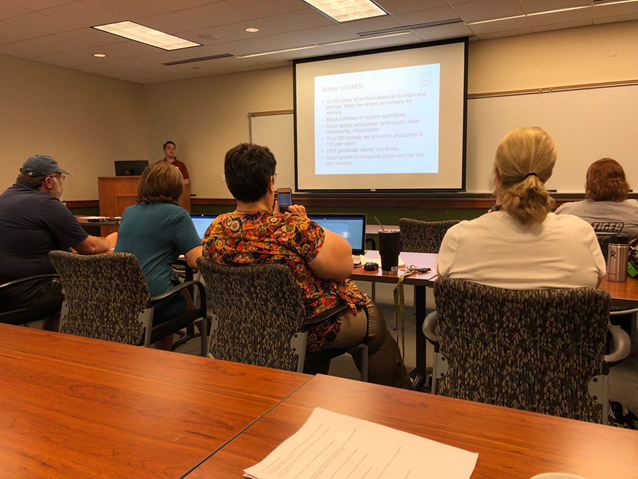
-
2017 Research Experience in Biology for High School Students: Like last year, we held a one-week Lab Research Experiences for 5 selected high school students in July 2017. The major goal of this training activity is to provide students an opportunity to be exposed to the scientific culture, to get-in-touch with real research, to interact with graduate students, postdoctoral fellows, and faculty members, and to see the career path as a scientist. During this week, students were trained by our graduate student Christopher Hartline in basic molecular biology lab techniques related to proposed aims of our NSF Broad Impacts Plan project. This year, students were also given the opportunity to engage with their peers through reading and discussion of synthetic biology review papers. We expected the students to have an unforgettable and deep research experience and to develop strong interests in science. We received excellent feedback from the students at the end of the week. Below are the results of the questionnaire, where on a scale of 1-5, 5 represents “strongly agree” and 1 represents “strongly disagree”.
-
Q1: This program helped me understand how to clone a sequence of DNA. Score: 4.8
-
Q2: This program helped me understand sterile cell culturing technique. Score: 5.0
-
Q3: This program helped me understand of the basics of synthetic biology. Score: 4.8
-
Q4: This program helped me have a better understanding of how to do research in a biological research lab. Score: 5.0
-
Q5: This program helped me think about my future career. Score: 4.8
-
Q6: I would recommend this program to a friend. Score: 4.8
-
-
2016 Lab Research Experience for High School students: We held a one-week Lab Research Experiences for 5 selected high school students in July 2016. The major goal of this training activity is to provide students an opportunity to be exposed to the scientific culture, to get-in-touch with real research, to interact with graduate students, postdoctoral fellows, and faculty members, and to see the career path as a scientist. During this week, students were trained by our postdoctoral researcher Dr. Jie Sun in basic molecular biology lab techniques related to proposed aims of our NSF Broad Impacts Plan project. These techniques include sterile culture, liquid handling, DNA purification, DNA transformation, cryopreservation, competent cells preparation, microscope usage, and lab safety. We expect the students to have an unforgettable and deep research experience and to develop strong interests in science.
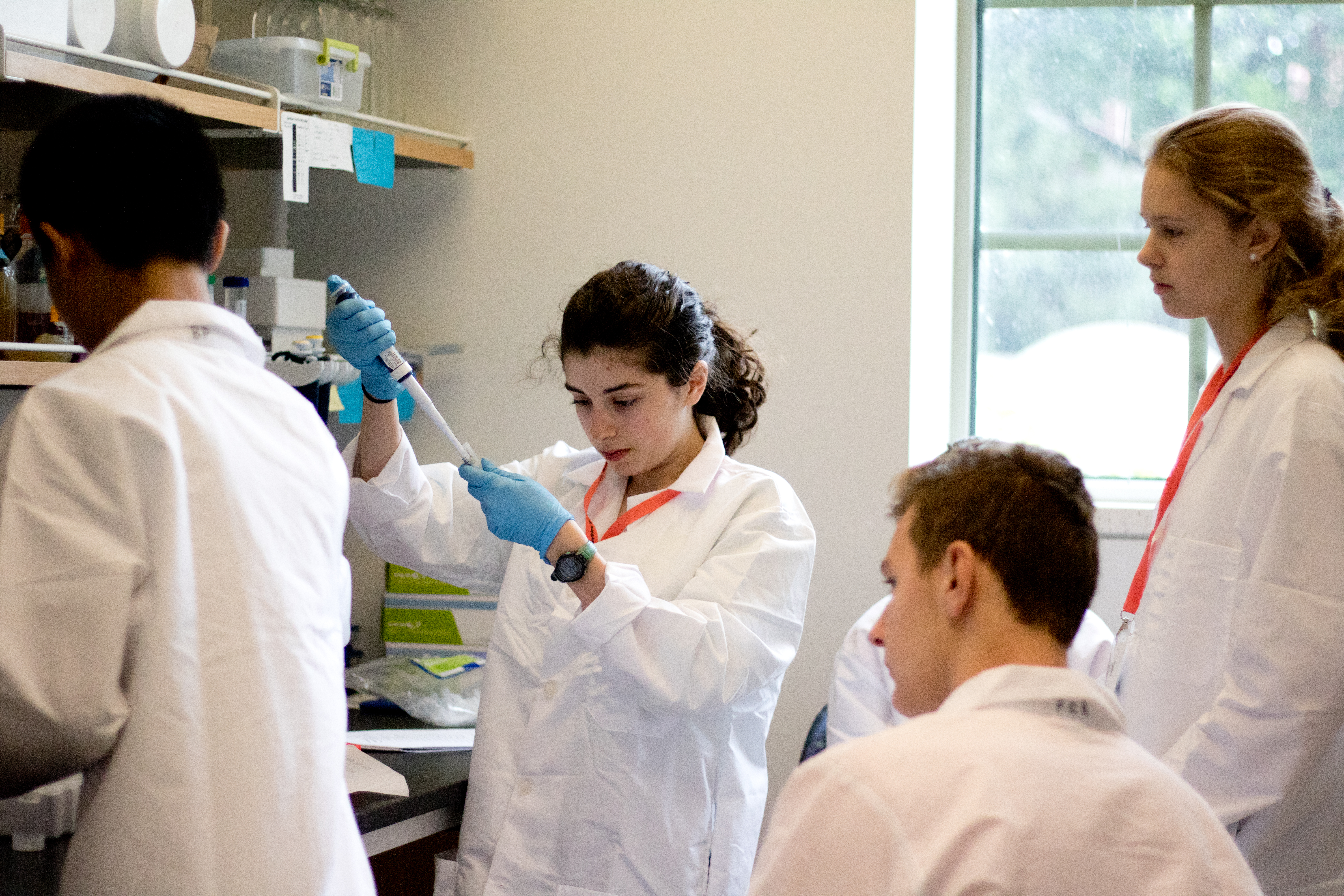
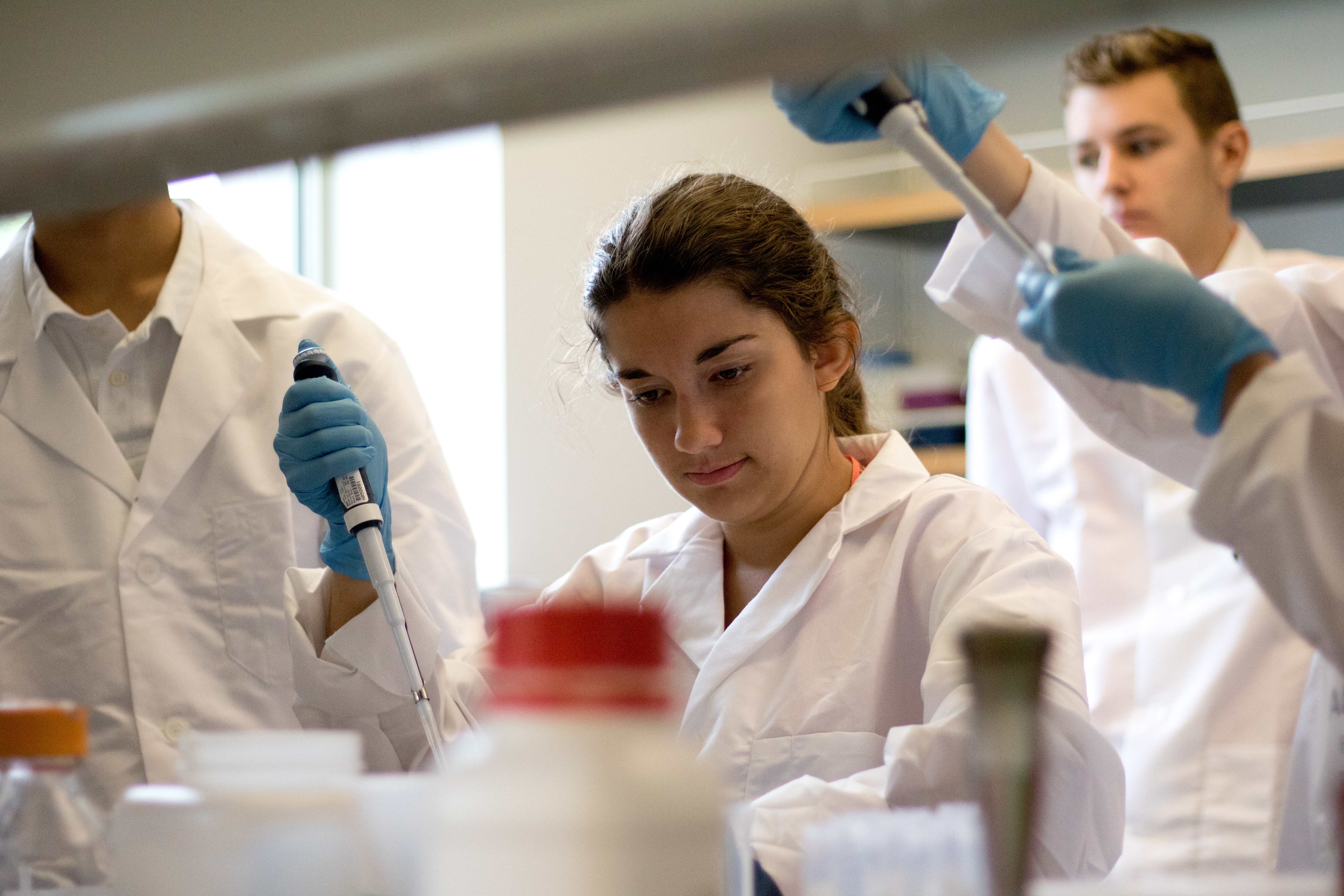
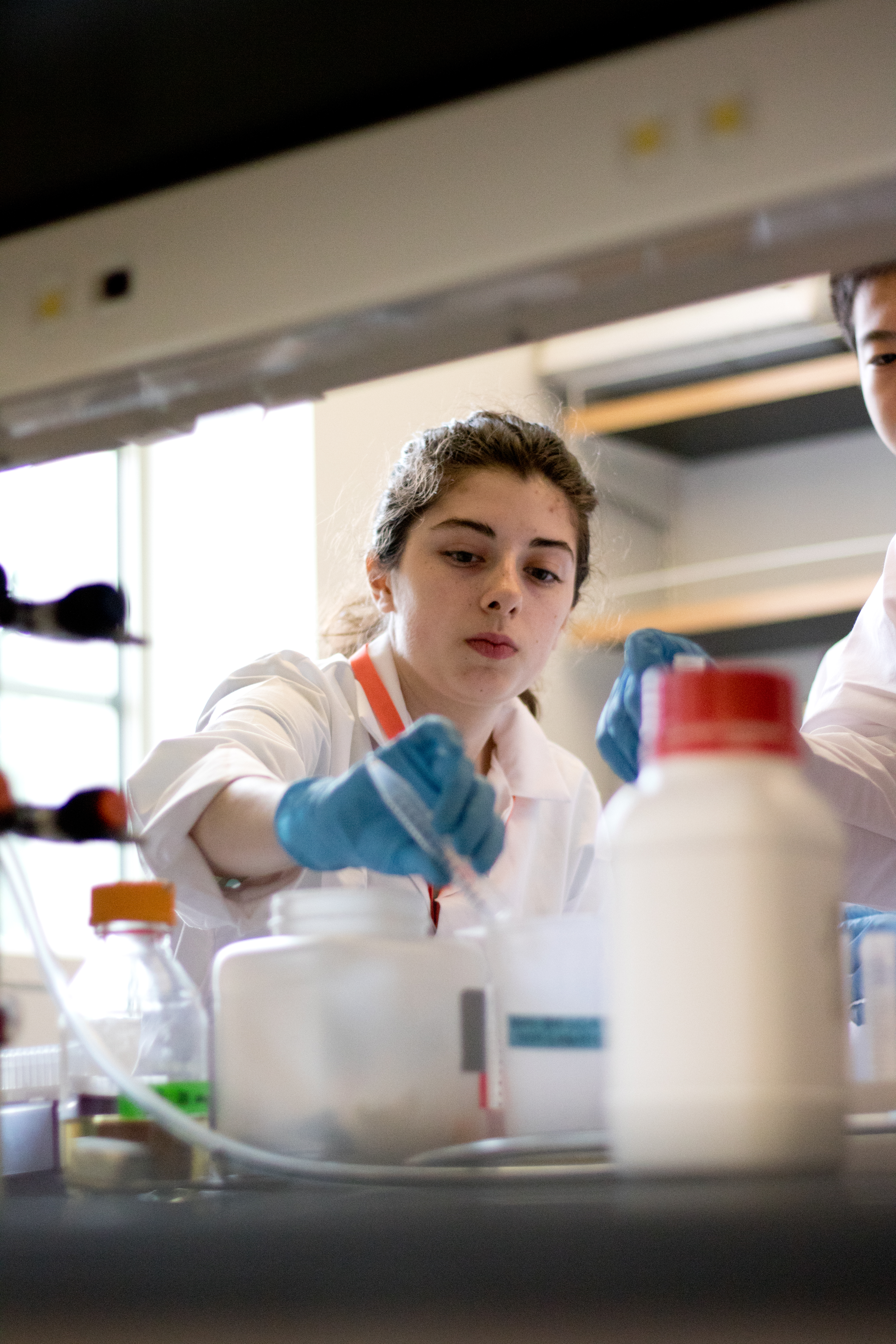
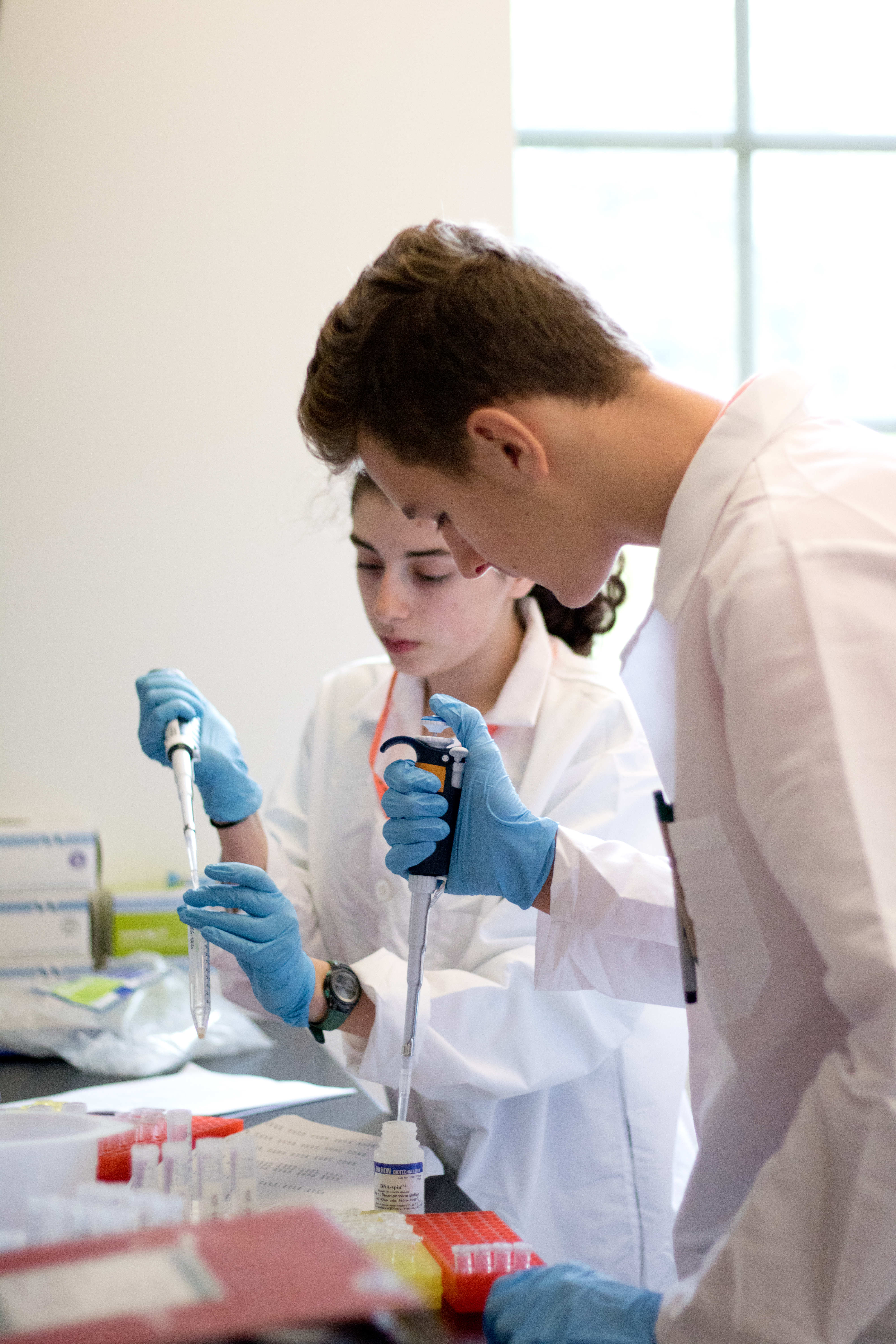
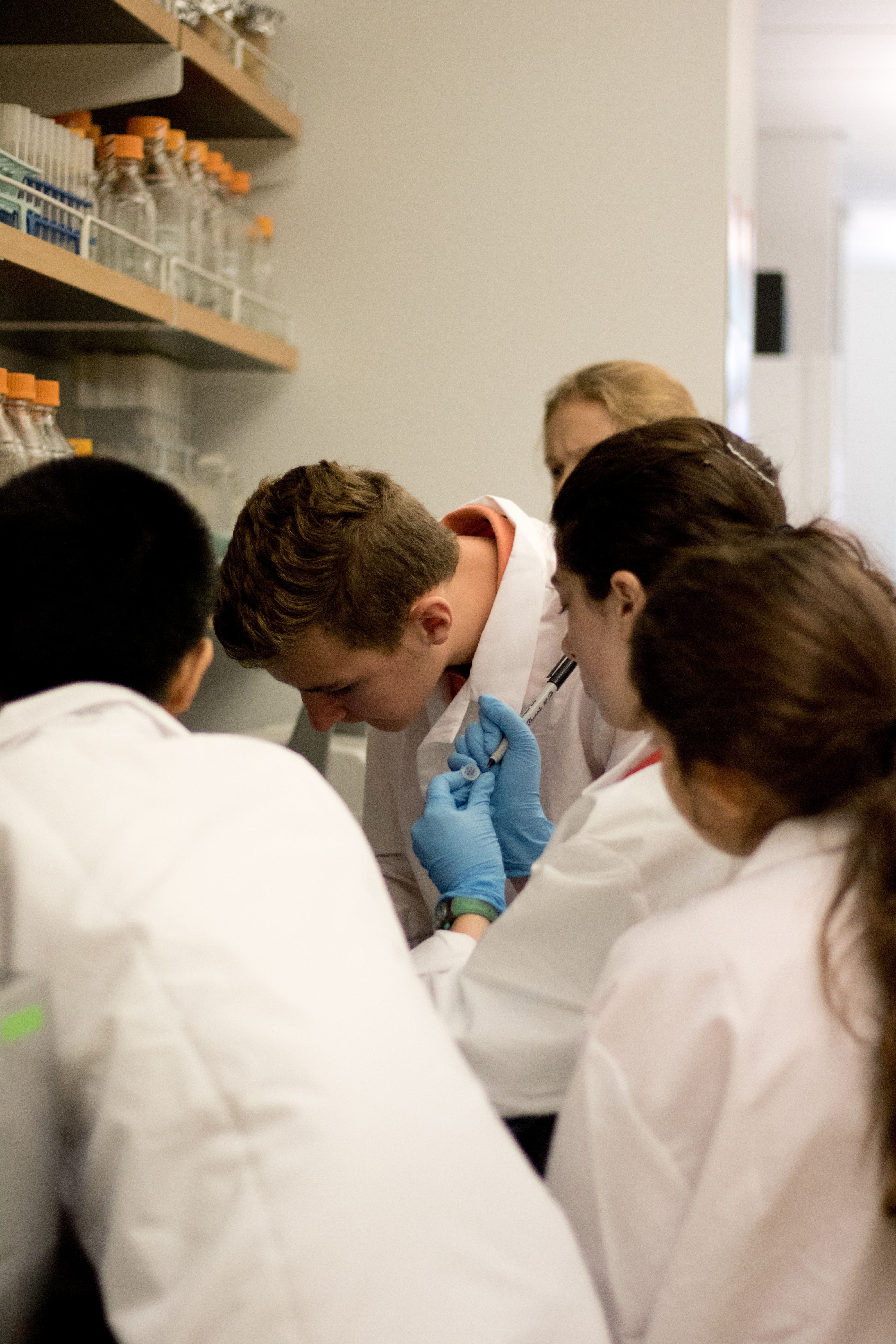
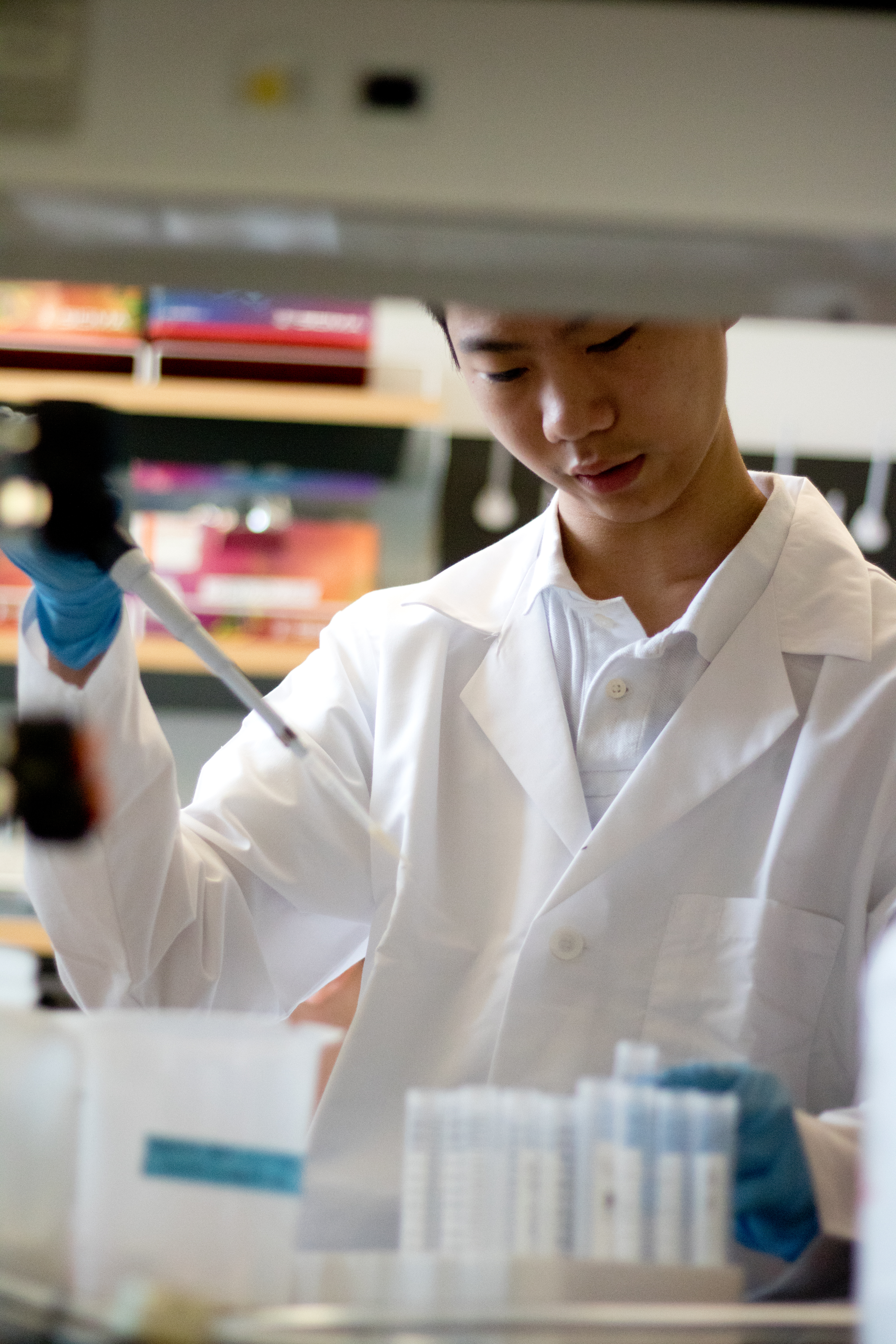
-
2016 Workshop “Hot Topics in Synthetic Biology”: As a part of the Broad Impacts Plan for a NSF-funded project, we continued to hold this workshop on Jun 18th, 2016. Dr. Nathan Crook, from the Department of Pathology and Immunology in Washington University School of Medicine, was invited to present “Intro to Bioenergy and Synthetic Biology”. Graduate students Gayle Bentley and Di Liu also presented topics on “Advanced Biofuels” and “Synthetic Biology Tools” respectively, followed by discussion related to their research work. Pre- and post-assessment were performed to evaluate the impact of our workshop. We received excellent feedback from the teachers based on our post-assessment. Post-workshop questionnaire, 1-5 scale, with 5 representing “strongly agree” and 1 representing “strongly disagree.”
-
-
Q1: I am more familiar with synthetic biology after this workshop and can explain to a student what synthetic biology means. Score: 4.4
-
Q2: I am aware of how ethanol and/or biodiesel fuels are generated now. Score: 4.3
-
Q3: I feel that my students have excellent access to cutting edge science, including the opportunity offered by the Zhang lab for students to participate in a 1-week research project. Score: 3.5
-
Q4: I am excited to share what I learned in the workshop with my students. Score: 4.75
-
Q5: This workshop made me more interested in science. Score: 4.6
-
Q6: This workshop helped me understand how basic science is applied to solve real world problems. Score: 4.2
-
Q7: What was the most interesting thing you learned today? (1. What synthetic biology is; 2. The advancements in regulating biological pathways; 3. Dynamic regulation of microbe metabolism; 4. Biofuel production process drawbacks of ethanol SynBio in a nutshell; 5. Hard to say… It was great to get updated about the state of technology of gene regulation and applications thereof; 6. All of it. Synthetic-, Bio-, ethanol is a savior for farmers – created a use for the glut of grain; 7. Tools – driven by application sensor mechanisms and controls for increasing productivity.)
-
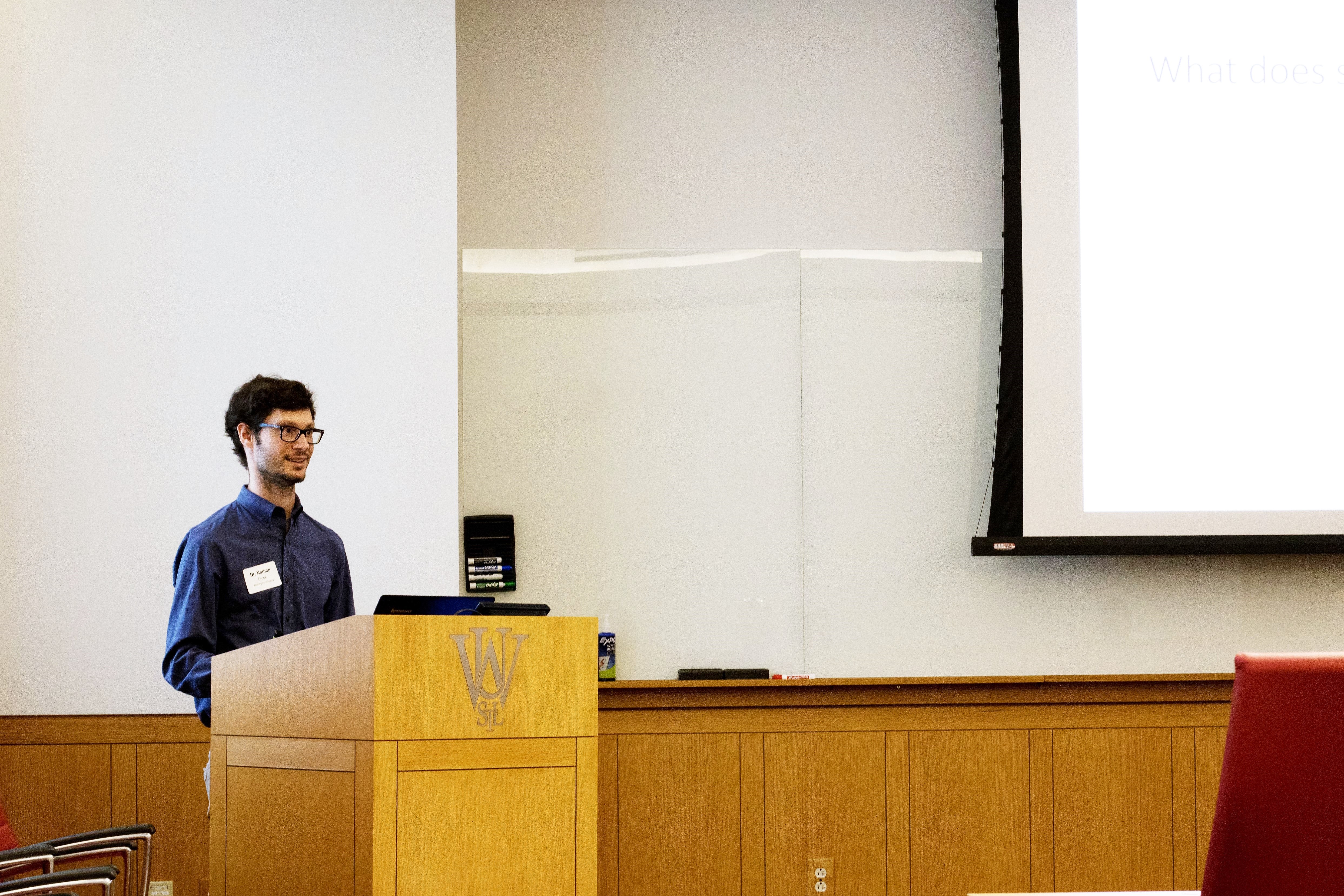
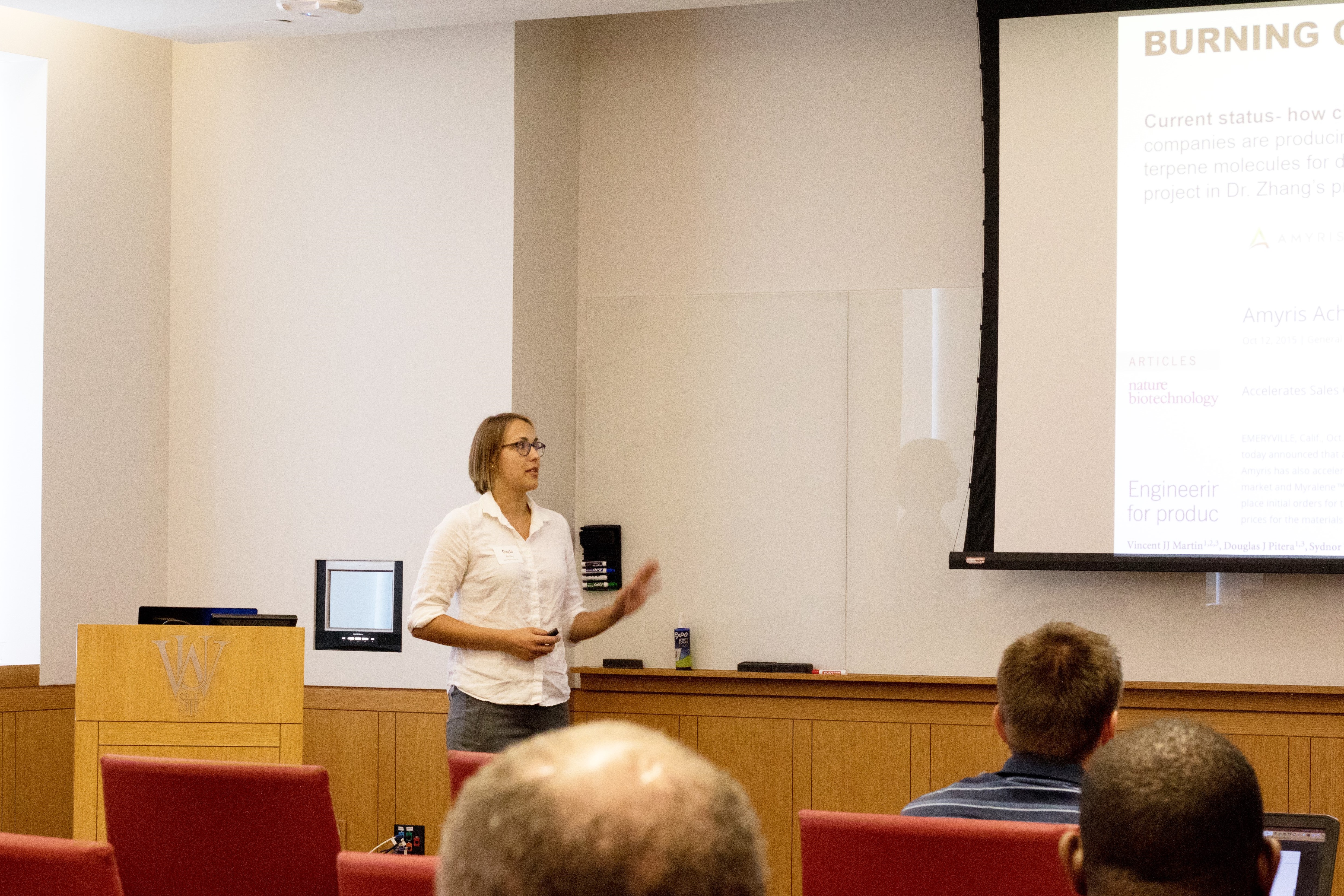
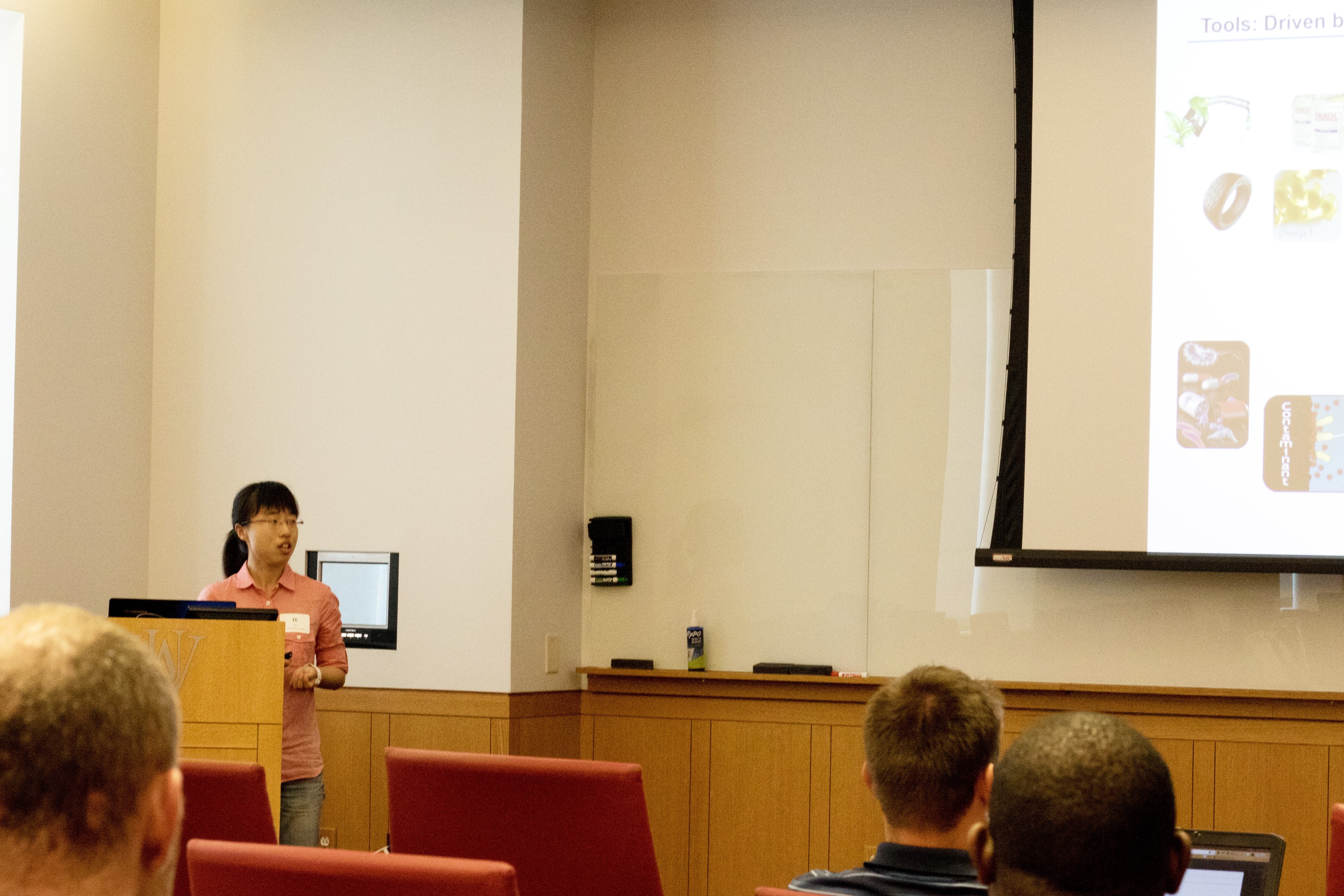
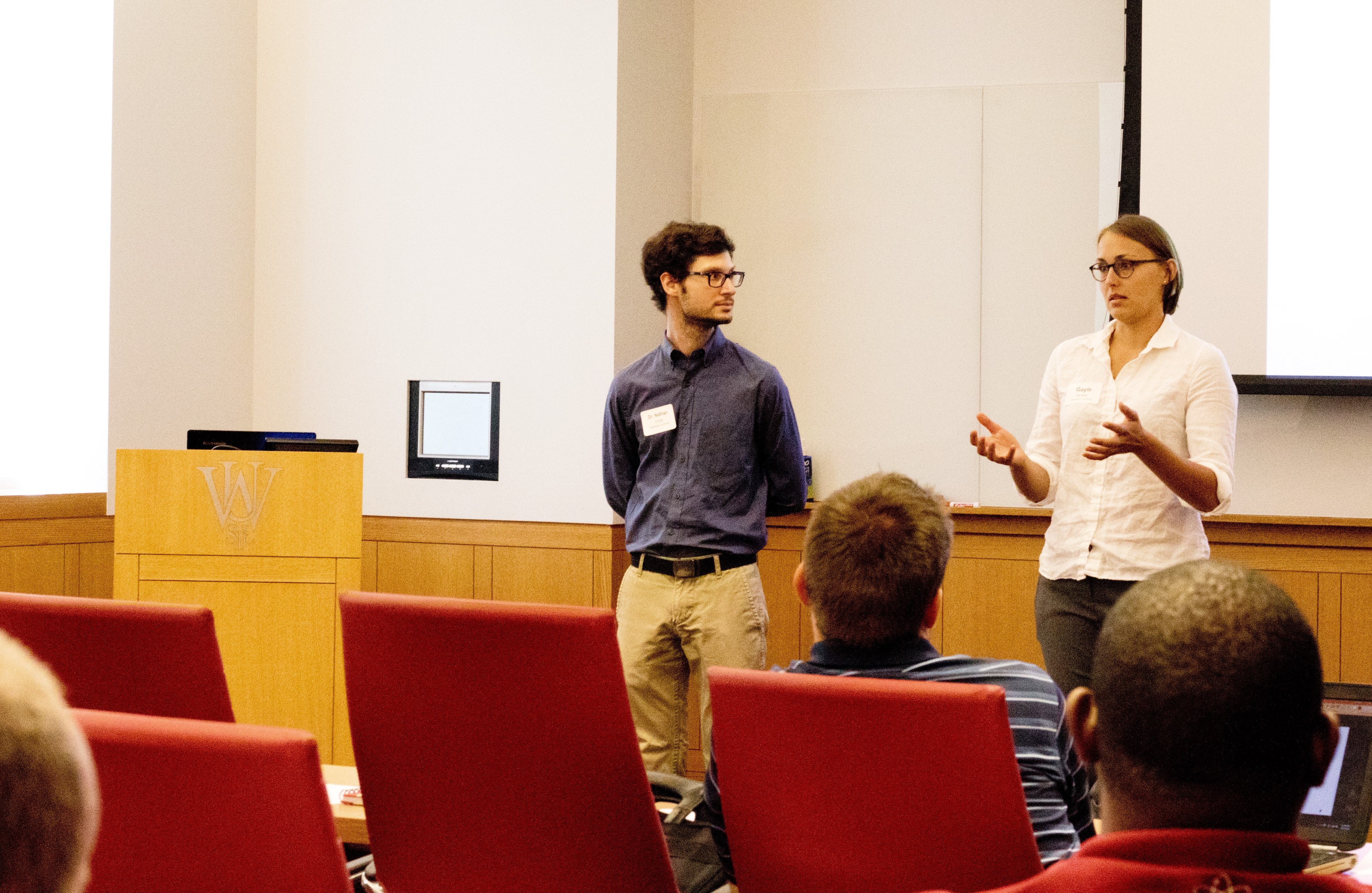
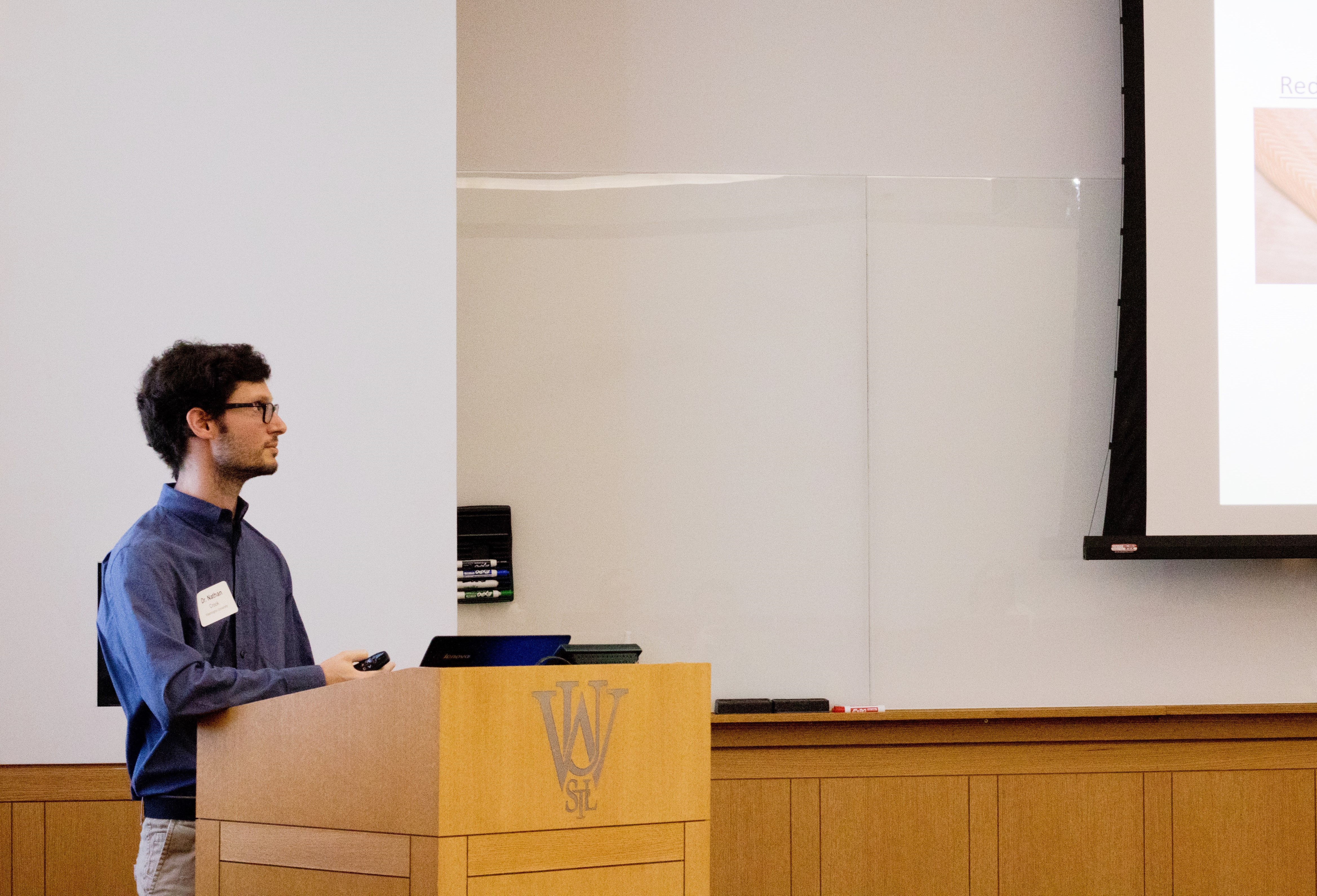
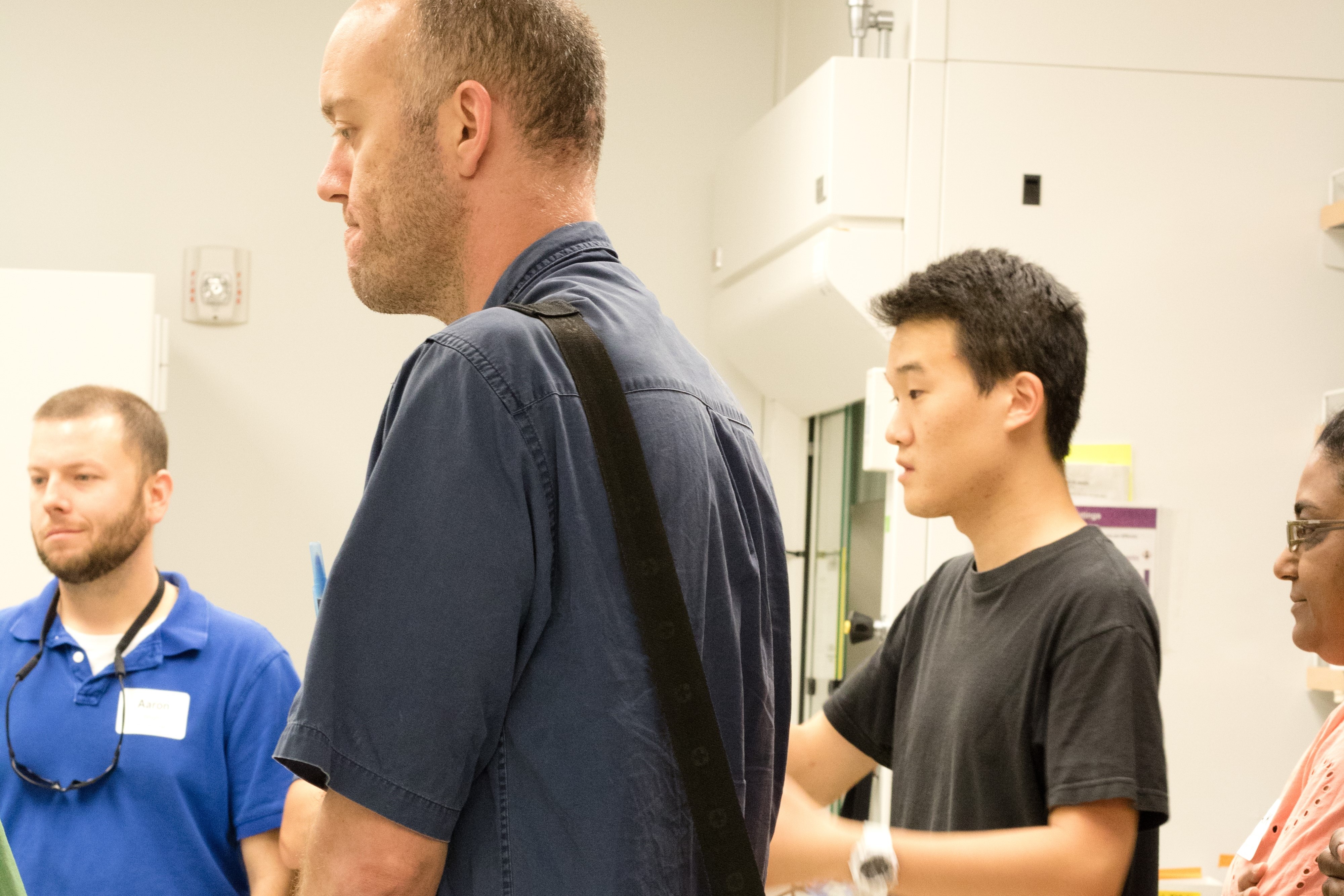
-
2015 Workshop “Hot Topics in Synthetic Biology”: As a part of the Broad Impacts Plan for a NSF-funded project, we hold a workshop titled “Hot Topics in Synthetic Biology” on Jun 27th, 2015. Totally twenty K-12 teachers from local public high schools attended this workshop. By educating high school teachers who will later teach multiple classes of students during the coming semester after the workshop, we expect to educate a total of 2000 students each year through this workshop.

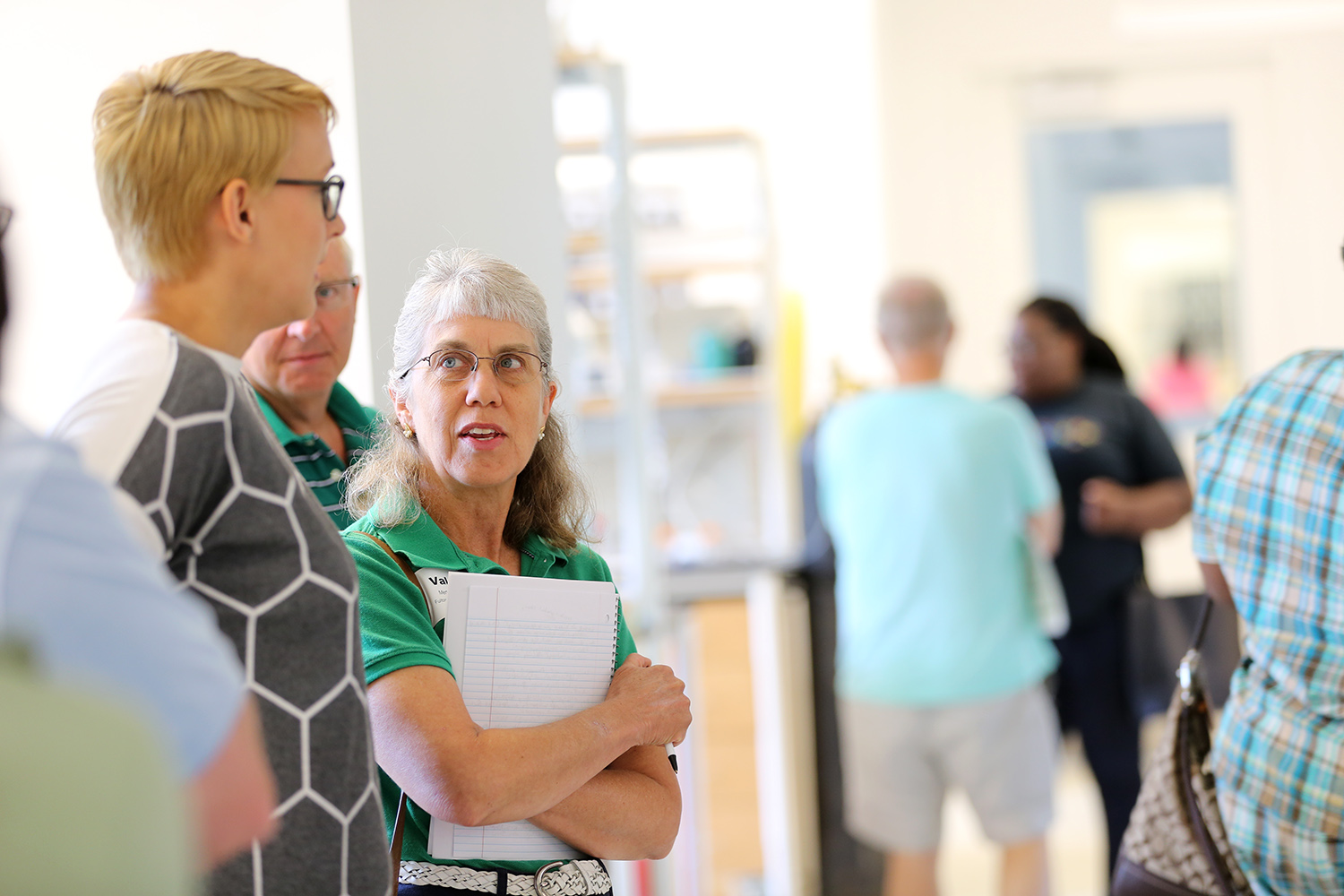
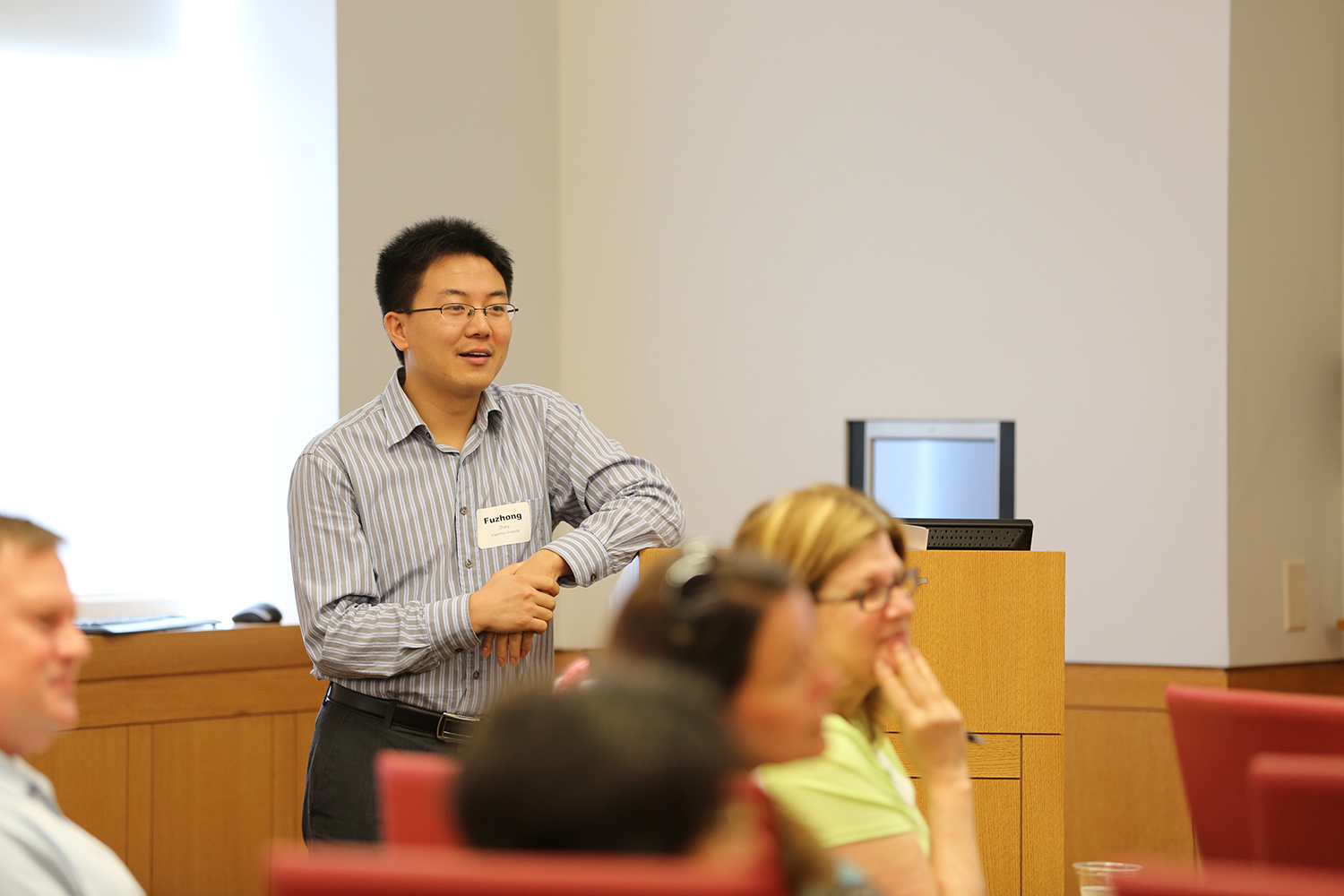
We received excellent feedback from the teachers based on our post-assessment. Post-workshop questionnaire, 1-5 scale, with 5 representing “strongly agree” and 1 representing “strongly disagree.”

Training
-
NSF REU program: The Research Experiences for Undergraduates (REU) program is a NSF-funded program to support undergraduate students to get involved in research. This program at our department (EECE) at Washington University in St. Louis (WU) is unique for its focus on “Energy Research with Global Reach”. This program will provide undergraduate students an opportunity to work independently in research labs at WU and two weeks at one of the McDonnell Academy Global Energy and Environment Partnership partnering institutions (this year at the University of Queensland , Australia). In 2013, Sara Glade (REU student) has spent a great summer with us.
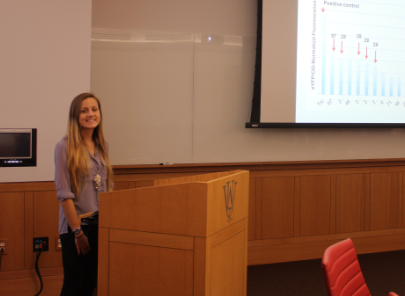
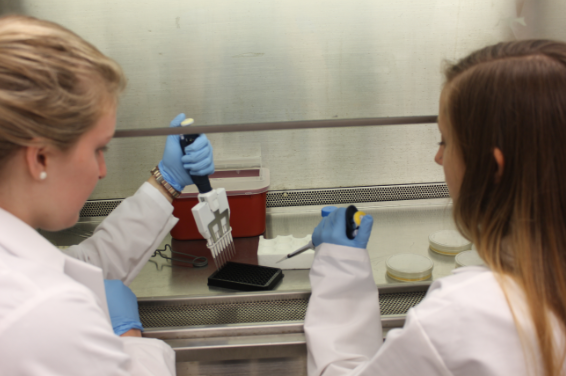
-
Washington University iGEM team: We frequently participate in training the WU iGEM team. In past years, WU iGEM teams have worked with us on a challenging but interesting synthetic biology project about nitrogen fixation. In 2017, our WU iGEM team worked on engineering radiation resistance in model microbes and won Gold Medals at the Annual iGEM Jamboree!
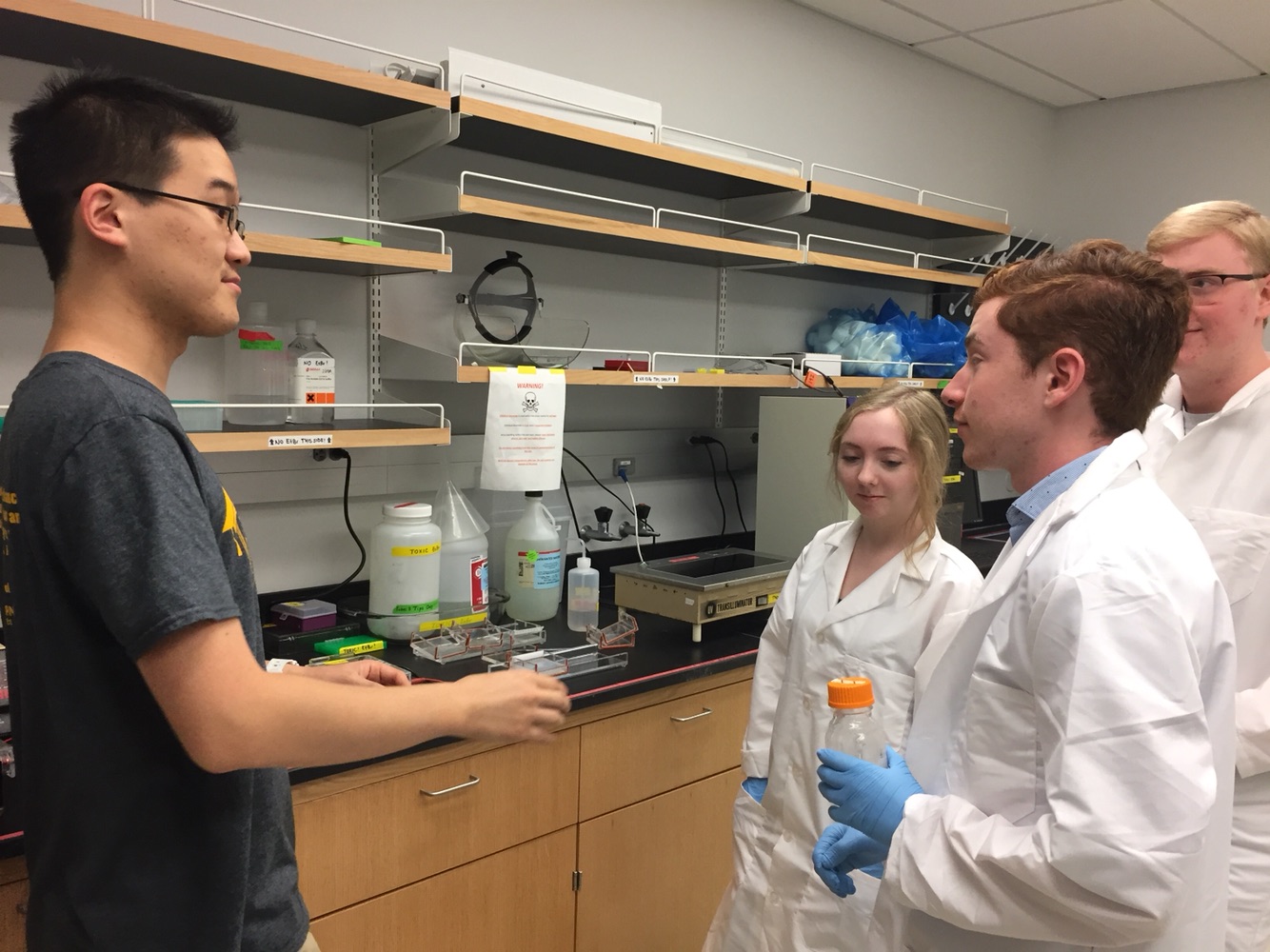
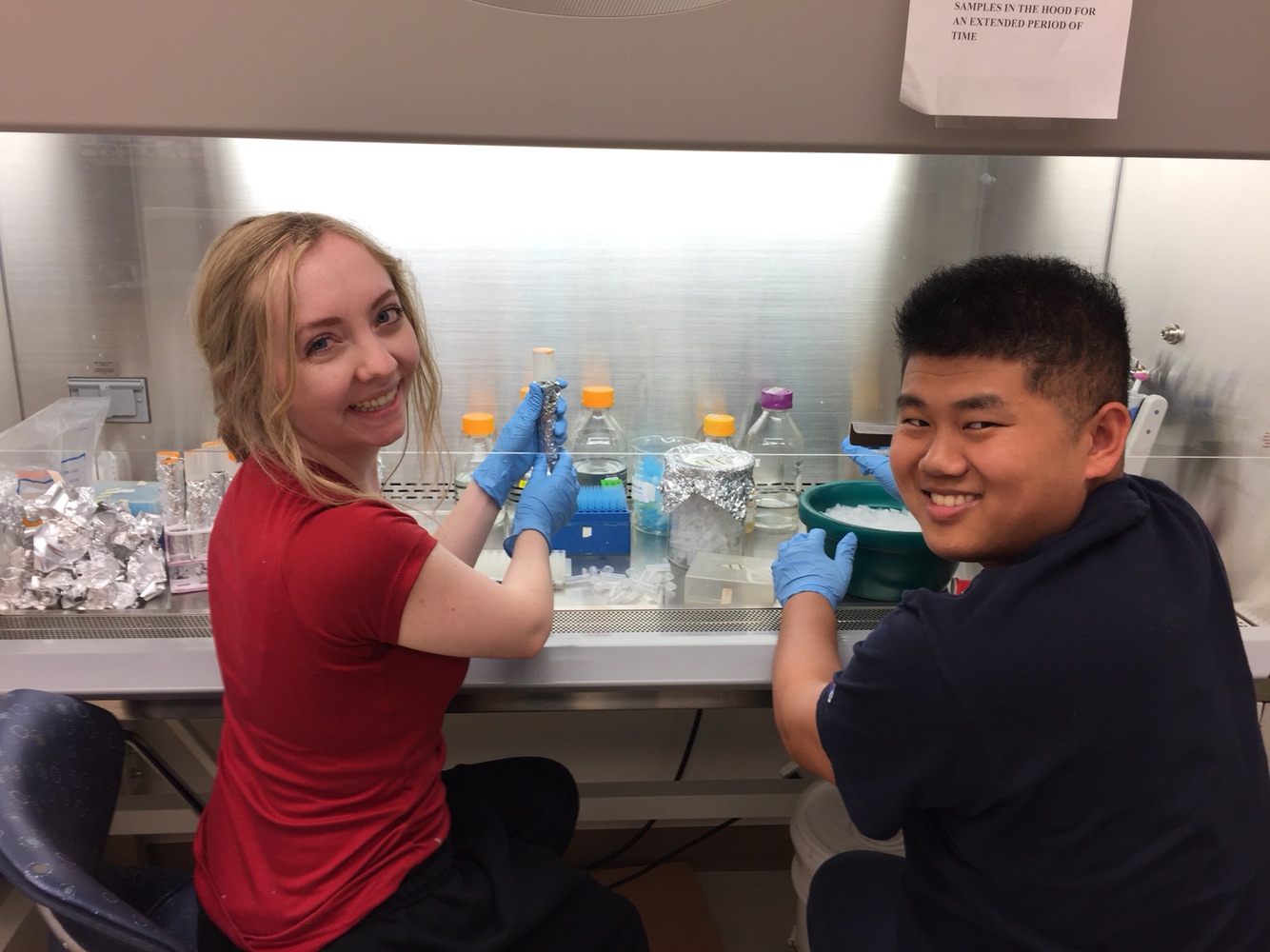
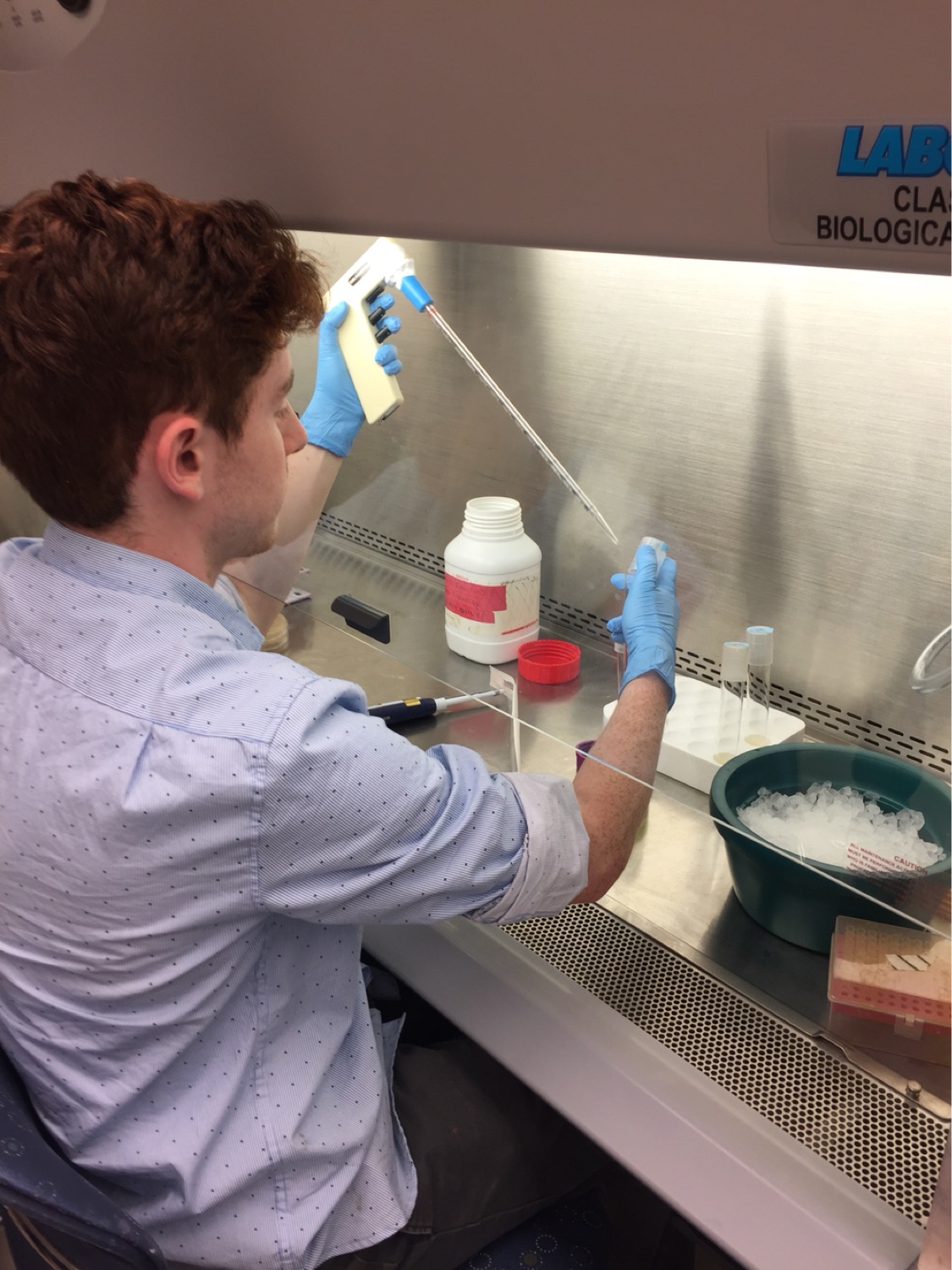
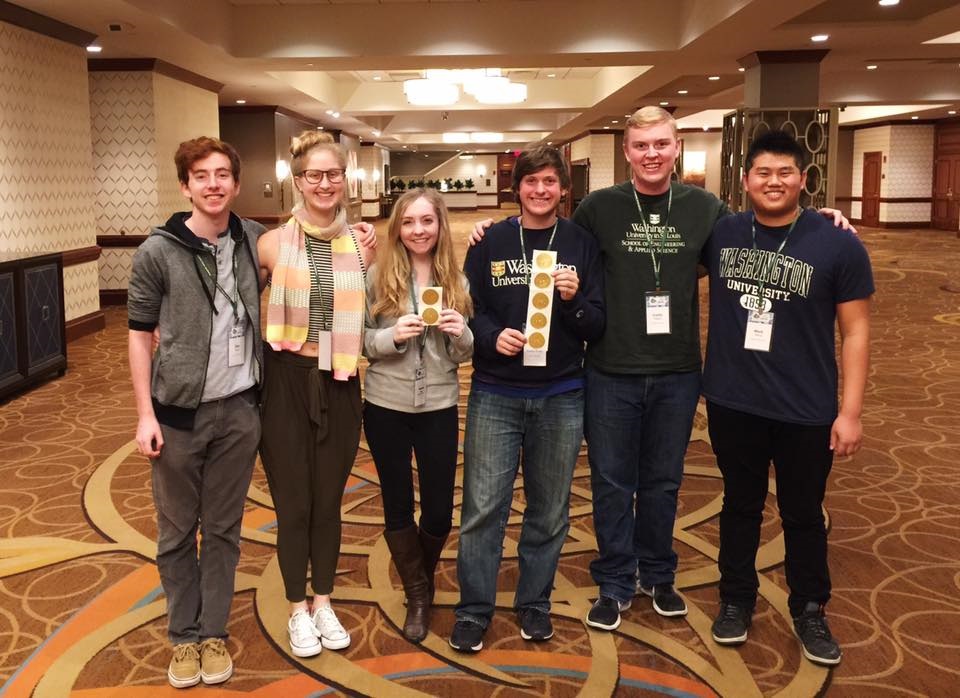
-
Rotation Students and undergraduate students: We are constantly training rotation students from DBBS and the engineering school of WU.
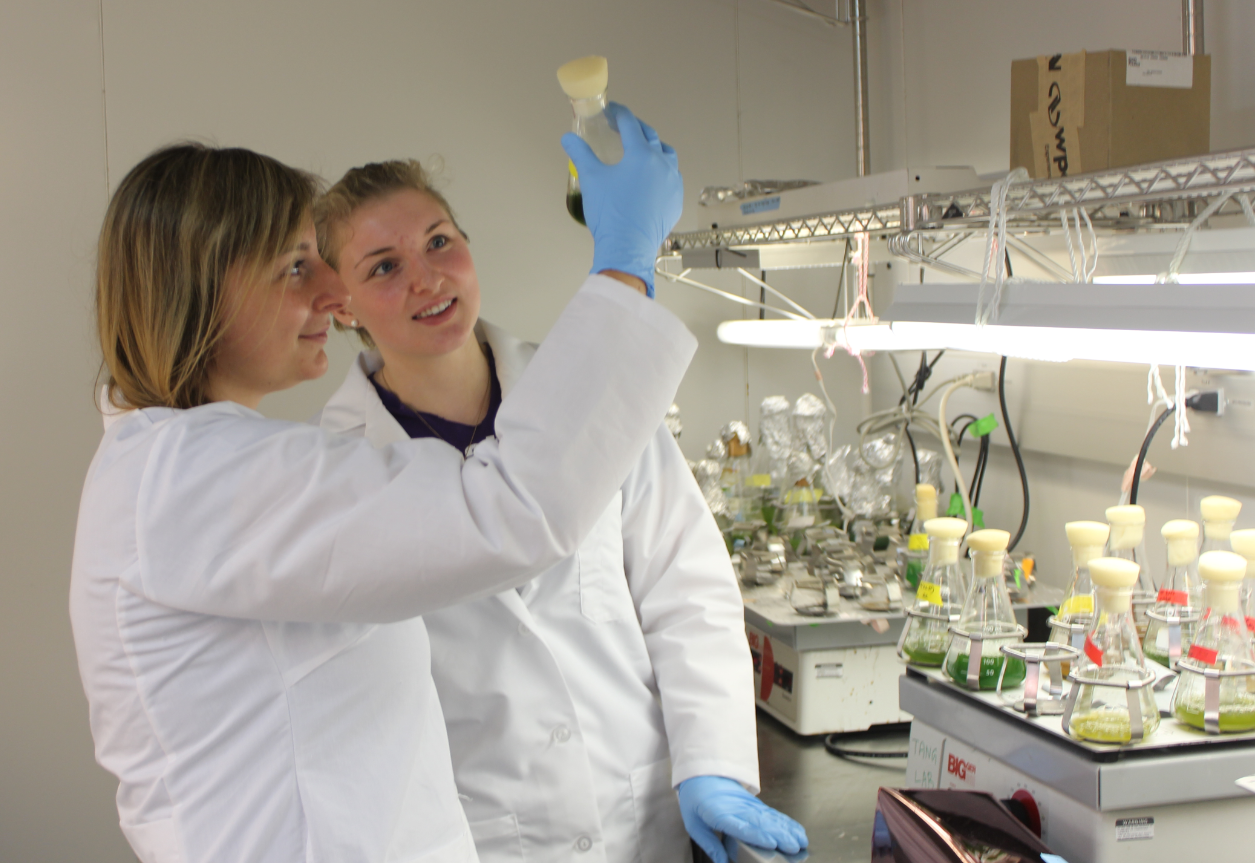
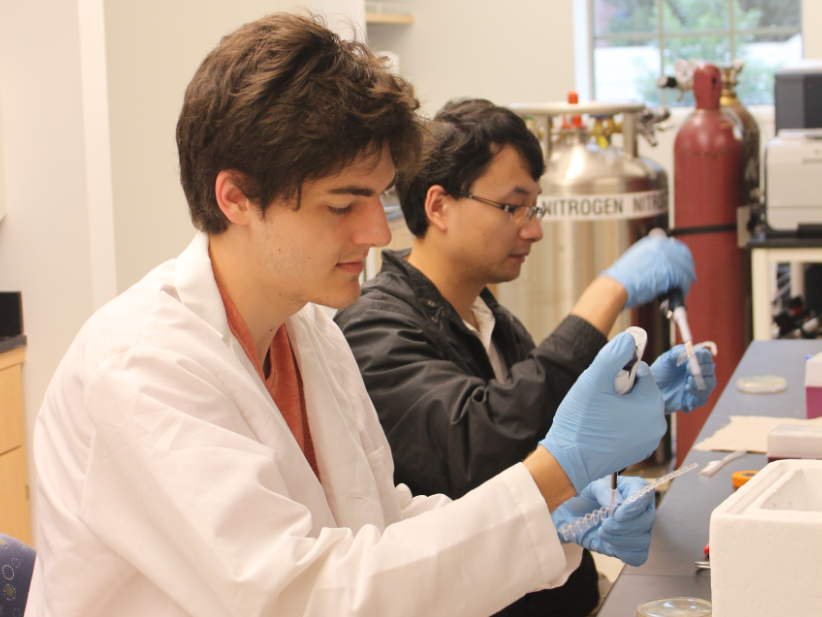

In the Media
- Dr. Zhang received the NSF CAREER Award, see WashU Record NewsRoom, Dec 2014
- Fox 2 News, Nov 2014
- Our work got highlighted by NSF, Sept 2013
- Dr. Zhang received the 2013 DARPA Young Faculty Award, Aug 2013
- Dr. Zhang received the 2013 ORAU Ralph E Powe Jonior Faculty Enhancement Awards, May 2013
- Varun Krishnamurthy is named the McKelvey Scholar!, Jan 2013
- Scientific American, Apr 2012
- Biodiesel Magazine, Apr 2012
- Green Car Congress, Apr 2012
- Biorefining Magazine, Apr 2012
- Sina News, Apr 2012 (Chinese)
- AIChE, Mar 2012
- Science Daily, Mar 2012
- R&D Magazine, Mar, 2012
- Science News Line, Mar 2012
- Advanced Biofuels USA, Mar 2012
- News Center LBNL, Mar 2012
- Softpedia, Mar 2012
- EcoFriend, Mar 2012
- BioFuel Daily, Mar 2012
- IPS Cell Therapy, Mar 2012
- Science Daily, Apr, 2010
- Freiburg Univ. News, Apr 2010